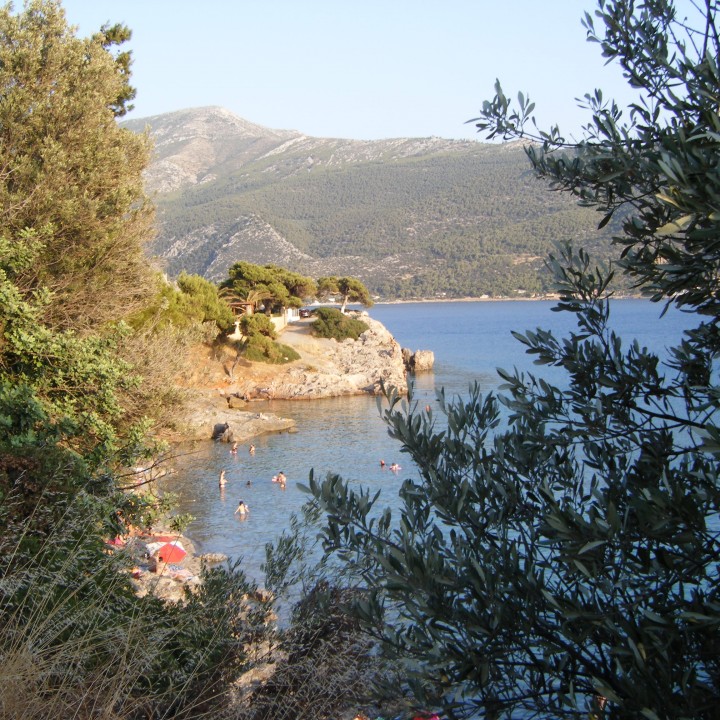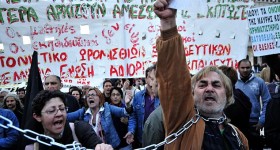A comparison of the economic crisis of Greece in the 3rd century AD and today

When I published my monograph on the Roman Monetary System in 2012 I was accused that I did not tackle adequately the third century crisis. This was the most long lasting crisis in the Roman Empire that eventually led to an entirely new political, economic and social system in Late Antiquity.
When I published my monograph on the Roman Monetary System in 2012 I was accused that I did not tackle adequately the third century crisis. This was the most long lasting crisis in the Roman Empire that eventually led to an entirely new political, economic and social system in Late Antiquity.
The reason I did not present my views in full was because I was planning another monograph. Regrettably, I have not had the chance to finish it, since I decided to leave academia and pursuit a different path in life.
As I keep writing my love of history blog, it would be a good idea to present briefly my views on the topic. These views changed slightly in view of the economic crisis Greece is facing for the past few years. I hope you will excuse the fact that I will not be using any references and that the language will address the educated public and not my ex colleagues.
The third century economic crisis has not been called a ‘crisis’ for more than a decade. The German scholars, especially, were very keen to rename it into ‘Transformation’. They insisted that we are just witnessing the political transformation, which led to economic and social changes. Or vice versa. One of the economic indicators, which proves this theory, are archaeological evidence, which indicate a proliferation of large villas.
This is true! If you study excavation finds, especially in Greece, you realise that the Roman villas are increasing in size. Similarly, the surrounding buildings are multiplying. So, how is it possible that such a wealthy region is suffering from an economic crisis?
On the other hand, we encounter a few inscriptions with complains about the authoritarian behaviour of the authorities. At the same time, the monetary system is collapsing and in many cases it is replaced with the exchange of bullion! By the end of the third century Diocletian is trying to tackle rampant inflation and moralises on the exorbitant prices.
The third century situation is very similar to the Greek situation today. The ‘haircut’ (see default) of 2012 affected only marginally the Greek oligarchs. Statistics indicate that their tax contributions increased by 9%, while the tax contributions of the poor increased by 337%. At the same time, property prices dropped by 40% and building labour costs decreased at an equal rate. This is the best time to buy a large mansion or build a Roman villa! Wealthy individuals and foreign companies have been scooping up entire neighbourhoods in the middle of Athens.
The Greek population has been complaining about the corruption of Greek authorities for some time now. The oligarchs own the media and have substantial influence in the Greek government. For years they managed to secure lucrative contracts, avoid taxation and, thus, cause the downfall of my country. The voices of the people are loud and clear. They may not come through official channels but you can hear them in the streets and in social media (facebook seems to be a national pastime). They resemble the Roman Greeks who during the third century complain to the imperial authorities… in vain.
As for the monetary system… well… where do I start! Roman Greece did not have its own system. The region was fully embedded into the Roman monetary system and used the silver and gold coins issued in Rome. There was some leeway with small change. Local cities could issue bronze coinage for the daily needs of the inhabitants. This coinage did not have a massive impact on the overall system, since it was exchanged at Roman imperial rates. On the whole, money monopoly belonged to the central imperial authorities.
Similarly, modern Greece uses the euro, which is issued in the Central Bank of Europe. Monetary sovereignty is a thing of the past. I am currently close to believing that also national sovereignty has been lost in the pursuit of … prosperity and economic convergence. European authorities control liquidity, ‘benefactions’ (European Regional Growth Fund), minting, exchange rates. They have full control of the money monopoly. Greece needs to follow central directives and obey central rules. Which is ok, as long as there is a a central political agenda. But there is no such thing! Greece is sacrificed in the altar of Euro Survival. Similarly, Roman Greece was sacrificed in the altar of the political and military aspirations of the 26 emperors who ruled over a 50 year period!
Roman Greece as modern Greece are both suffering from the inherent deficiencies of the central monetary system. In the Roman period the continuous debasement caused the collapse of the denarius. In Europe the political disparity between North and South is causing the instability of the euro and threatens economic prosperity.
I cannot help but mention one major difference between the two periods. By the end of the third century inflation plagued the markets. In 2015 Greece is suffering from deflation. As an economist I understand very well that deflationary tendencies last longer and cause deeper depressions. In both cases the vast majority of the population suffers. The rich become fewer and richer, while the poor (or middle class) become poorer.
I cannot blame the Romans for what happened to third century Greece. After all, Greece has been really Roman for almost 5 centuries. I do blame the Roman emperors, though, for having total disregard for the need of the population and for pursuing their own ambitions.
I can blame the Europeans, though, for how they treat the Greeks. 10 million human beings at the heart of Europe are closer than ever to default! Suicides are increasing at a rate of 40% per year. 30% of the population is below the poverty line. 60% of our youth is unemployed. 35,000 medical consultants left Greece. Over 200,000 people emigrated, 180,000 of which are university graduates. 3 buses caught fire in the last 2 months, because of the lack of maintenance. Cancer patients are left untreated. Children go to school starving. Where does it end?
Although we do not have similar statistics for the Roman empire, I believe that there is some scope for comparison. In both cases, the gap between the rich and the poor widened. In both cases, the population suffered.
I am sure some future historians will call the current Greek crisis a ‘Transformation’. It sure as hell does not feel like one!


Are we going to extend the analogy to include the Gothic sack of Athens, Corinth, Argos and Sparta in 267AD or is that getting too close to the bone
We are getting there
One way or another history always repeats itself – a very interesting analogy!